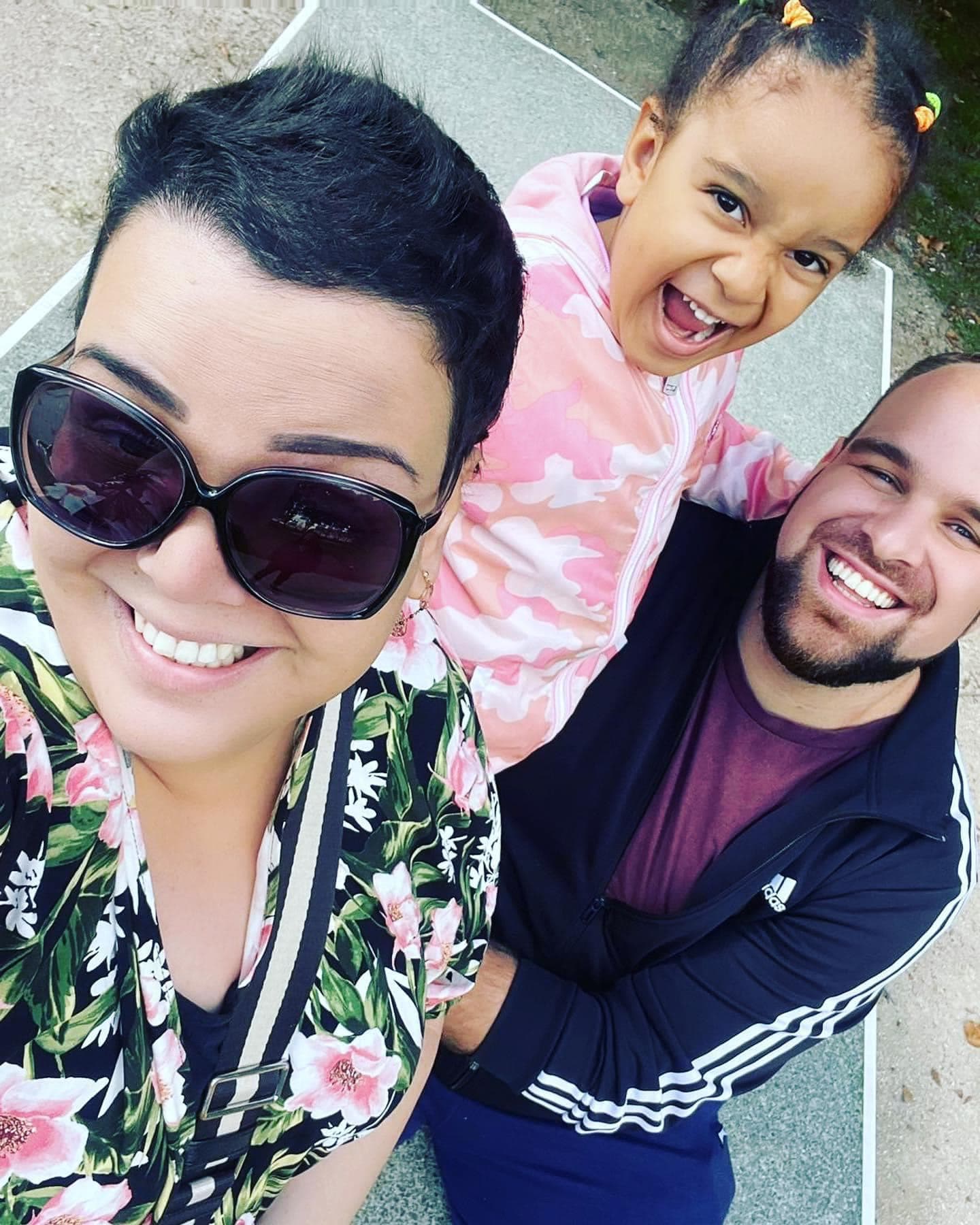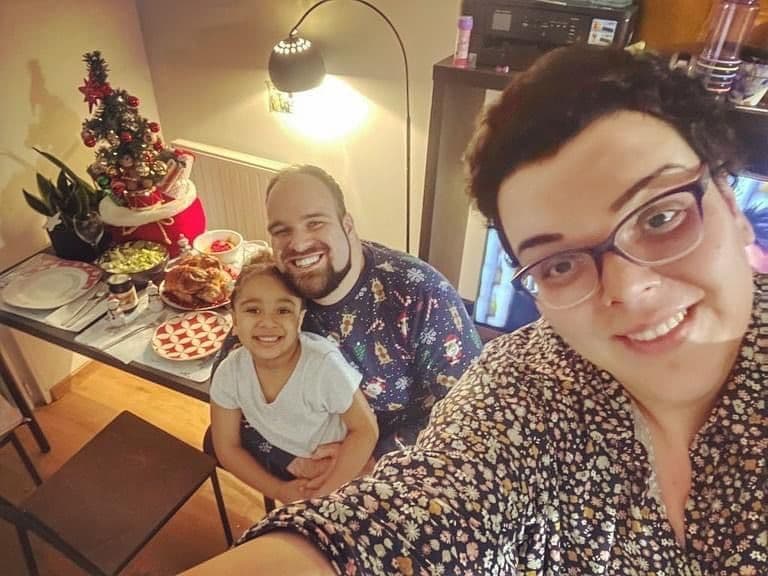As we continue our series honoring F5ers who give back, UK-based sales compensation analyst George Pischinas’ story shows what’s possible when we channel personal loss into positive action and purpose.
Earlier this year, George lost his 32-year-old sister, Vera, to a rare and very aggressive cancer. It’s been a devastating loss for him and his family. Yet he’s made a commitment to turn his grief into a force for social good.

A close relationship from the start
George always had a close relationship with his older sister, Vera. They played together growing up in Chalkida, a small city in Greece about an hour away from Athens. They both enjoyed learning English in high school. And they both ended up moving to the UK and earning their master’s degrees at two universities just an hour apart.
To George, Vera had everything going for her. After completing her studies, she moved to Paris where she followed her dream of teaching English. Together with her husband, they were building a family, raising their young daughter, Stella. Vera enjoyed relaxing at home, reading books to her toddler and spending time with family. She also worked at the British Council in Paris, teaching English as a second language to children. “She loved teaching,” George recalls. “She loved people, passing on knowledge, and doing something fun and innovative for the kids.”
Coping with a devastating diagnosis
In December 2021, things started to change. Vera began experiencing persistent headaches and a blocked nose and decided to see a doctor. At first, doctors thought she had a sinus infection and prescribed antibiotics, but this failed to relieve her symptoms. She eventually got a CT scan, which detected a shadow between her nose and right eye. After an MRI and then a biopsy, she was told she had an aggressive form of sinonasal carcinoma. It took doctors another month to finally understand that Vera had SMARCB1 Deficient Sinonasal Carcinoma. SMARCB1 deficient cancers are exceptionally deadly and aggressive and most often strike young adults and children.
George says he was heartbroken when Vera told him the news. “SMARCB1 deficient cancers are some of the most difficult ones out there,” he says. “No one knows how to treat them, and the chances of survival are really low, so it’s a matter of how long can someone prolong their life with the limited research and medical data we have today.”
““I feel like I’m doing something super important, and that gives me peace with my life.”George Pischinas, Sales Compensation Analyst at F5”
As Vera researched SMARCB1-deficient cancers, she came across SMARCB1 Hope, a nonprofit organization dedicated to accelerating research and finding effective treatments for SMARCB1 deficient cancers. Vera shared a podcast the nonprofit had produced, and George decided to contact its founders, Cassie & Jean-Baptiste Toulouse, a French-American couple who had recently lost their daughter, Ella, to the same cancer.
Over the next several months, SMARCB1 Hope put George’s family in touch with leading researchers in the field and pushed to get Vera the immunotherapy they believed could extend her life. They also supported Vera on a personal level, providing emotional support as her health worsened.
Finding purpose in the face of tragedy
A year ago, during the holiday season, Vera was still living at home. George traveled to Paris to support her as she coped with horrific side effects from her treatments. He was amazed at how when these side effects lessened a bit, Vera was able to decorate her kitchen table and prepare a special meal, despite her progressing illness. “She knew it was her last Christmas, and she wanted all of us to celebrate together,” George says.

A few months later, Vera was hospitalized for the last time. One day when George was visiting, he found himself seated across from a young boy in a wheelchair patiently waiting for his chemotherapy appointment. “I felt so weak, like what was I supposed to do?” George says. “Having a child in front of me, it was the first moment where I said if I’m losing my sister, I’m going to do everything in my power to change this.”
In the last days of Vera’s illness, George shared his plan with his sister. “One of the promises I gave Vera is that I’m going to do everything I can to help find a cure for SMARCB1 deficient cancers so others won’t have to go through this,” he says.
Transforming grief into action
Now a volunteer at SMARCB1 Hope, George is working toward that promise. He’s begun raising awareness for SMARCB1-deficient cancers, and recently obtained a $5,000 USD Community Impact Grant from F5 to help SMARCB1 Hope reach a wider audience with its website. He’s also leading the nonprofit’s social media strategy, freeing up time for the founders to focus on research, including hosting symposiums to bring researchers and medical professionals together to accelerate progress towards effective treatments.
Volunteering is helping George work through his grief. “I feel like I’m doing something that’s super important, and that gives me peace with my life,” he says. “And on a wider scale, it makes me feel good to give back to the community.”
As he moves forward with his life, George wants other people to understand how important it is to cherish their family and friends. “Value the time you have with your loved ones,” he says. “it’s important to say ‘I love you’ to the people you’re close to. Later it might be too late, so do it now.”
You can find our previous blog post in this series here.
Visit F5’s Global Good webpage to see how F5 inspires community action: https://www.f5.com/company/global-good
About the Author
Related Blog Posts

Why sub-optimal application delivery architecture costs more than you think
Discover the hidden performance, security, and operational costs of sub‑optimal application delivery—and how modern architectures address them.

Keyfactor + F5: Integrating digital trust in the F5 platform
By integrating digital trust solutions into F5 ADSP, Keyfactor and F5 redefine how organizations protect and deliver digital services at enterprise scale.

Architecting for AI: Secure, scalable, multicloud
Operationalize AI-era multicloud with F5 and Equinix. Explore scalable solutions for secure data flows, uniform policies, and governance across dynamic cloud environments.

Nutanix and F5 expand successful partnership to Kubernetes
Nutanix and F5 have a shared vision of simplifying IT management. The two are joining forces for a Kubernetes service that is backed by F5 NGINX Plus.

AppViewX + F5: Automating and orchestrating app delivery
As an F5 ADSP Select partner, AppViewX works with F5 to deliver a centralized orchestration solution to manage app services across distributed environments.
F5 NGINX Gateway Fabric is a certified solution for Red Hat OpenShift
F5 collaborates with Red Hat to deliver a solution that combines the high-performance app delivery of F5 NGINX with Red Hat OpenShift’s enterprise Kubernetes capabilities.